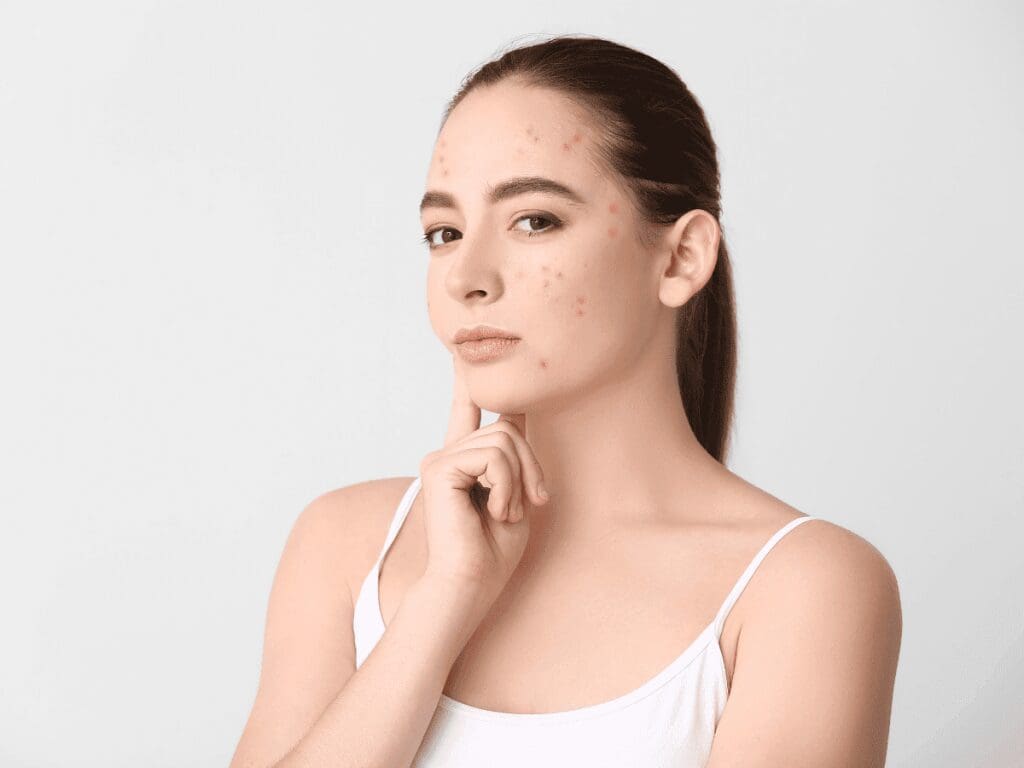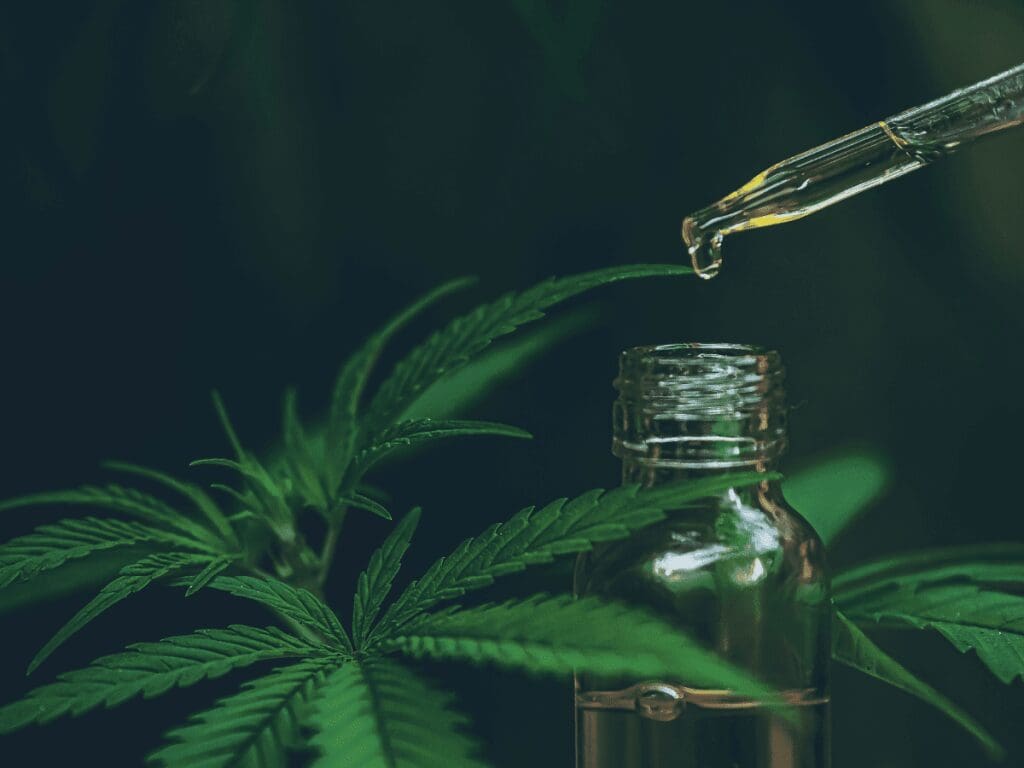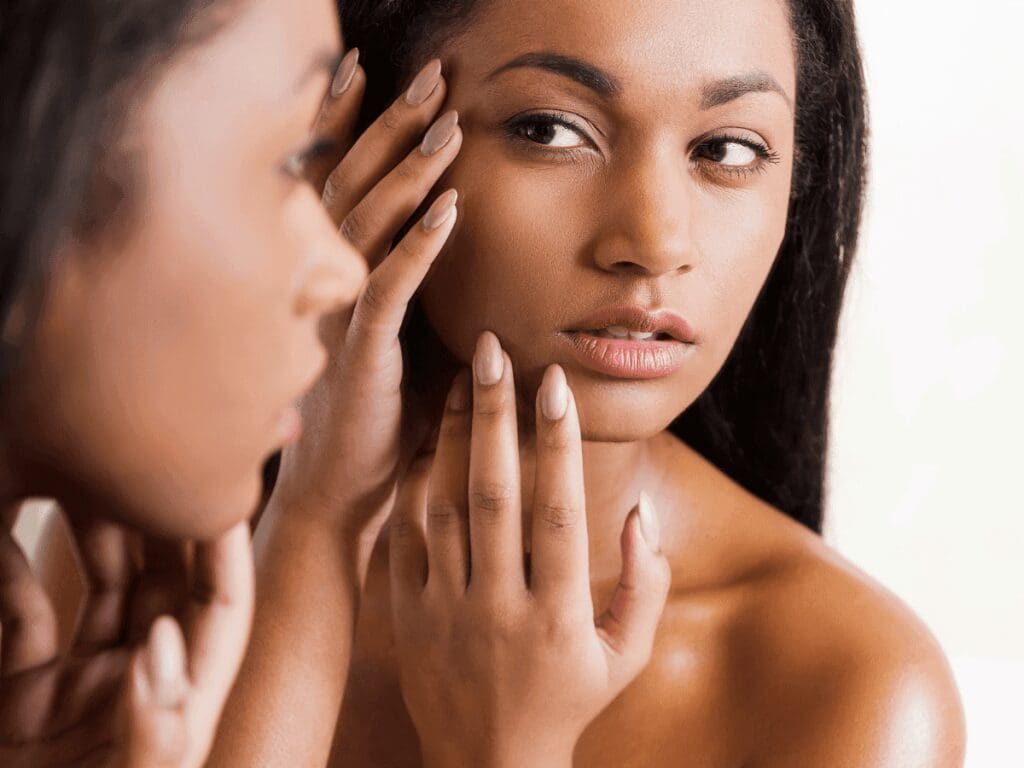Key Takeaways:
- CBD’s Role in Acne: Initial studies point towards CBD’s anti-inflammatory and sebum-regulating properties potentially aiding acne control. Yet, more in-depth human research is awaited for confirmed benefits.
- Professional Guidance: For anyone considering CBD for acne, advice from dermatologists is essential to ensure compatibility and effectiveness, addressing individual skin needs comprehensively.
- Product Selection: Emphasize the importance of sourcing CBD products from trustworthy vendors that offer detailed product information, including CBD content and testing, and uphold sustainability and ethics, to guarantee safety and efficacy.
Acne significantly affects individuals’ well-being, leading many to seek effective treatments beyond traditional options. The emergence of cannabidiol (CBD) as a promising option in skincare for acne management prompts an exploration of its potential benefits, backed by current research and insights from experts. This article will cover the fundamentals of CBD, including its source, legality, and application in skincare products.It aims to illuminate the difference between how CBD’s attributes might address crucial acne triggers and offers guidance on selecting high-quality CBD skincare items. By emphasizing product integrity and expert perspectives, we aim to present a well-rounded discussion for those considering CBD as an adjunct in their acne treatment regimen.
Elevate Your Acne Care Routine With CBD!
Take the initiative to refine your acne management strategy with CBD—start your journey towards clearer skin by making informed, considered choices today, including exploring unexpected uses of CBD in skincare. |
What Is CBD?
Cannabidiol (CBD) is a non-intoxicating compound found in the cannabis plant, setting it apart from THC. It’s primarily extracted from hemp, a Cannabis sativa variant with a long history of medicinal use, facilitating its integration into products like oils and creams. In many places, including the U.S., CBD products containing under 0.3% THC are legal, though laws vary by location. Studies indicate that CBD is generally safe and well-tolerated, with the World Health Organization acknowledging its therapeutic potential. Nonetheless, consulting healthcare professionals before incorporating CBD into health routines is recommended, especially for those with pre-existing conditions or on medications.
Understanding Acne
Acne arises from the blockage of hair follicles with oil and dead skin, presenting as blackheads, whiteheads, pimples, and more severe lumps mainly on oil-rich areas of the body. Hormonal fluctuations, diet, stress, and genetics are key factors in its development, affecting individuals into adulthood. It is categorized into non-inflammatory (blackheads and whiteheads) and inflammatory types (papules, pustules, nodules, cysts), the latter often leading to scarring. Traditional acne treatments include over-the-counter options like salicylic acid and prescription therapies such as antibiotics and retinoids. Despite their efficacy for some, these treatments don’t work for everyone and may have adverse effects, like antibiotic resistance or skin irritation, driving the demand for alternative approaches.
Reflecting on these challenges directs attention towards seeking effective, safe, and inclusive acne treatments, pushing the boundaries of conventional care towards holistic and innovative solutions.
Potential Benefits Of CBD For Acne
CBD’s application in acne management is underpinned by its multifaceted potential benefits targeting the condition’s root causes.

Anti-Inflammatory Properties
One of the most well-documented effects of CBD is its ability to alleviate inflammation. This property is particularly beneficial for acne treatment as it can reduce the redness and swelling associated with acne lesions, providing a calmer skin appearance and potentially minimizing pain caused by inflammatory acne types such as cysts and nodules.
Sebum Regulation
Excessive sebum production is a primary factor in the development of acne. Research suggests that CBD can act on sebaceous glands to regulate sebum production, helping to prevent the oily buildup that can lead to acne outbreaks. By maintaining a balance in sebum levels, CBD may assist in keeping the pores clear and reducing the occurrences of acne.
Antibacterial Effects
Bacterial infection is another contributing factor to acne severity. CBD has shown antibacterial properties, which can help in fighting against acne-causing bacteria, namely Propionibacterium acnes (P. acnes). This effect adds another layer of potential defense in managing acne, aiming at reducing bacterial growth and infection on the skin.
Together, these potential benefits position CBD as a promising adjunct in acne treatment strategies. While more research is needed to fully understand and confirm these effects, preliminary evidence supports the exploration of CBD-infused skincare products as part of a comprehensive acne management plan.
How To Use CBD For Acne
Integrating CBD into your acne treatment regimen can be done through a variety of product forms, each offering unique benefits for skin care. Understanding the different types of CBD products and how to use them effectively is key to maximizing their potential for acne management.
Types Of CBD Products For Acne
Topicals: CBD-infused creams, gels, and serums are directly applied to the skin, offering targeted treatment to acne-affected areas. These formulations may also include other acne-fighting ingredients, enhancing the product’s overall efficacy.
Oils: CBD oils can be applied topically or added to skincare products to combine the benefits of CBD with your existing routine. When applying directly, a small amount can be dabbed onto clean skin, particularly on problematic areas.
Cleansers and Soaps: For a more general application, CBD-infused cleansers and soaps provide a gentle way to incorporate CBD into daily skincare, helping to manage acne while keeping the skin clean and balanced.
Recommended Usage And Application Tips
Start Small: When introducing CBD products into your skincare routine, begin with a small amount to assess your skin’s reaction and adapt as needed.
Clean Application: Apply CBD products to clean, slightly damp skin to enhance absorption and effectivity. This is particularly important for topical applications.
Consistency is Key: Regular use of CBD products is critical to achieve and maintain results. Incorporating CBD into your daily skincare routine can help ensure consistent application.
Patch Test: Before general use, perform a patch test with any new CBD product to check for potential sensitivities or reactions.
Consult a Professional: Especially if you’re currently using other acne treatments or have sensitive skin, consult with a dermatologist before adding CBD products to your regimen. This ensures compatibility and avoids any adverse interactions with existing products.
By selecting the appropriate CBD product form and following these application recommendations, individuals looking for alternative acne solutions can explore the potential benefits of CBD in their skincare routine with confidence.
Considerations And Precautions
When incorporating CBD into acne management strategies, awareness of potential side effects and product quality is crucial to ensure safety and efficacy.

Potential Side Effects And Interactions
While CBD is generally well-tolerated, some individuals may experience side effects such as dryness or irritation, particularly with topical products. Moreover, although rare, CBD can interact with certain medications. These interactions are typically associated with CBD’s influence on the metabolization of drugs by the liver. To minimize risks, it’s advisable to discuss potential CBD use with a healthcare provider, ensuring it’s safe in conjunction with any current medications.
Importance Of Choosing High-Quality CBD Products
The CBD market’s growth has led to a wide variety of products, not all of which meet the same standards. High-quality CBD products are crucial for safety and effectiveness, as they are more likely to contain the advertised amount of CBD, free from harmful contaminants such as pesticides or heavy metals. When selecting CBD products, look for those that provide comprehensive third-party testing reports, also known as Certificates of Analysis (COA), which confirm their CBD content and purity.
By prioritizing product quality and staying informed of possible side effects and interactions, users can more safely and effectively explore CBD as part of their acne treatment plan. Always starting with a small dosage and gradually adjusting based on personal experience and professional advice can further enhance the beneficial impact of CBD on acne management.
Final Thoughts
CBD offers an innovative option for those exploring alternative acne treatments, backed by its abilities to diminish inflammation, regulate oil production, and combat bacteria. Ensuring the use of high-quality, lab-tested CBD products is crucial for both the safety and success of incorporating it into an acne care routine. It’s also vital to be aware of any possible side effects and to consult with a healthcare provider to mitigate risks, particularly for individuals with sensitive conditions.
Keep Reading:
- Which Amanita Is Edible?
- Delta 8 THC Flower: What You Need To Know
- Benefits Of CBD Oil For Senior Citizens
Frequently Asked Questions
Can CBD oil directly reduce acne?
CBD oil may help reduce acne due to its anti-inflammatory properties and ability to regulate sebum production, potentially minimizing the factors that contribute to acne development.
Are there any side effects of using CBD for acne?
Some individuals might experience dryness or irritation, especially with topical CBD products. It’s generally well-tolerated, but personal experiences can vary.
How often should I apply CBD products to treat acne?
Consistency is key. Apply CBD skincare products as directed, usually once or twice daily, after cleansing the skin. Start with a small amount to gauge skin reaction.
Can CBD products replace my current acne treatment?
CBD products can be a supplementary part of your skincare routine but consult with a dermatologist before making any changes, especially if you’re on prescription acne treatments.
Is CBD legal to use for acne treatment?
In regions where CBD is legal, it can be used for acne management. Check local regulations, especially about the THC content allowed in CBD products.
How long does it take to see results from using CBD on acne?
Results can vary widely among individuals. Some may notice improvements within a few weeks, while others might need longer periods to see significant changes.
What should I look for in a quality CBD acne product?
Look for products with clear labeling, third-party testing (Certificate of Analysis), and reviews indicating efficacy. Avoid products with unclear CBD content or source.
Can CBD help with acne scars?
CBD’s anti-inflammatory properties may help reduce the appearance of redness associated with acne scars, but more research is needed to assess its effectiveness on scar tissue.
Will using CBD on my face make me feel ‘high’?
No, topical CBD products do not penetrate the bloodstream and do not contain THC, the psychoactive component of cannabis, thus they will not make you feel ‘high’.
Can I use CBD if I have sensitive skin?
CBD is generally considered safe for sensitive skin. However, it’s recommended to patch test any new product and consult a dermatologist for personalized advice.
Sources:
- Peyravian, N., Deo, S., Daunert, S., & Jimenez, J. J. (2022). The Anti-Inflammatory Effects of Cannabidiol (CBD) on Acne. Journal of Inflammation Research, Volume 15, 2795–2801. https://doi.org/10.2147/jir.s355489
- Gildea, L., Ayariga, J. A., Ajayi, O. S., Xu, J., Villafane, R., & Samuel-Foo, M. (2022). Cannabis sativa CBD Extract Shows Promising Antibacterial Activity against Salmonella typhimurium and S. newington. Molecules, 27(9), 2669. https://doi.org/10.3390/molecules27092669
- Oláh, A., Tóth, B. I., Borbíró, I., Sugawara, K., Szöllõsi, A. G., Czifra, G., Pál, B., Ambrus, L., Kloepper, J., Camera, E., Ludovici, M., Picardo, M., Voets, T., Zouboulis, C. C., Paus, R., & Bíró, T. (2014). Cannabidiol exerts sebostatic and antiinflammatory effects on human sebocytes. The Journal of Clinical Investigation, 124(9), 3713–3724. https://doi.org/10.1172/JCI64628







